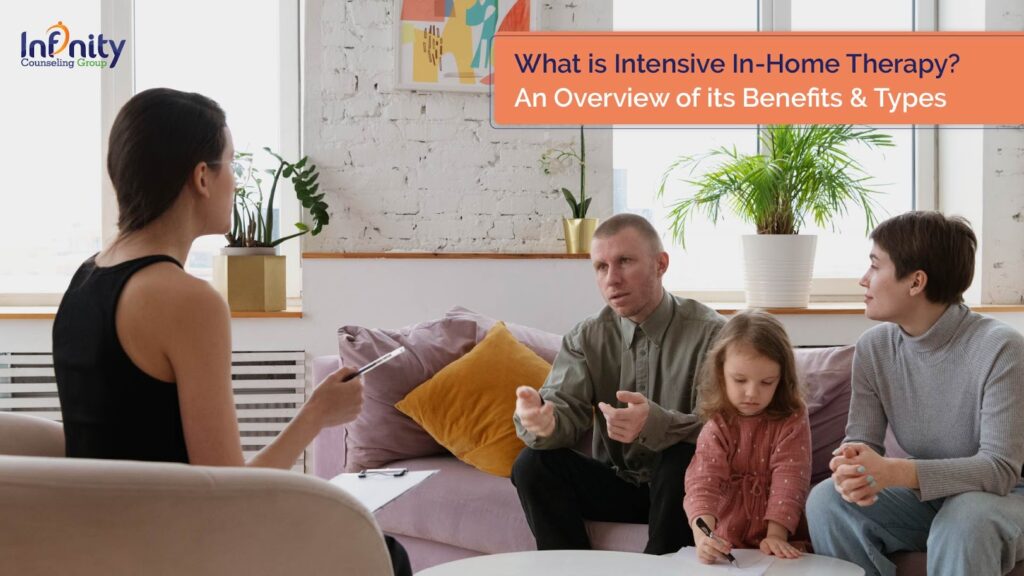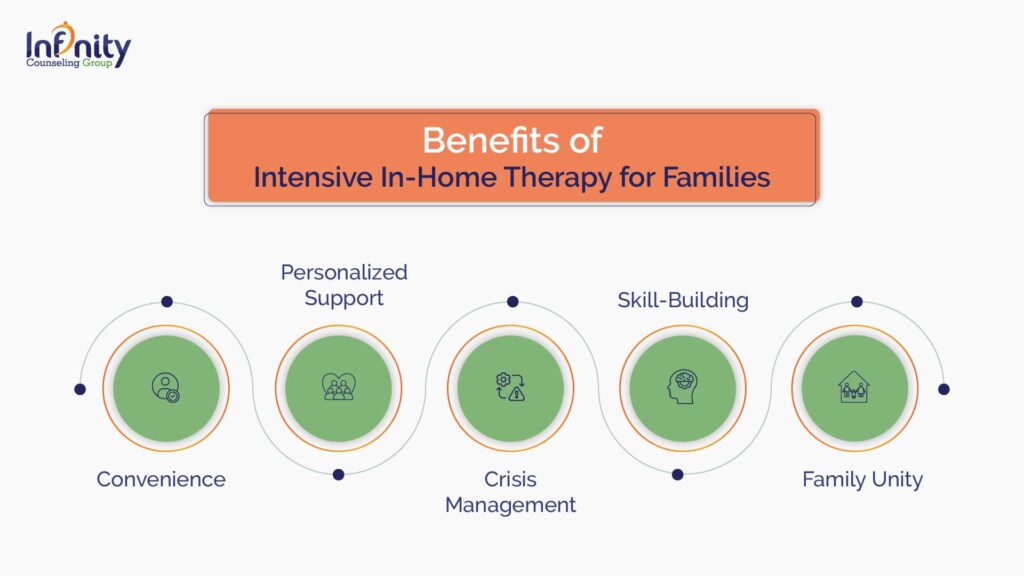
Introduction to Intensive In-Home Therapy
Mental health challenges can disrupt family harmony and strain relationships. Families dealing with emotional or behavioral disorders in children often seek practical solutions to foster stability and healing. One such solution is Intensive In-Home Therapy, a specialized approach designed to support children and families in their homes.
Intensive In-Home Therapy is a well-structured, family-centered mental health intervention focusing on complex emotional and behavioral challenges in children and adolescents. It does not involve typical clinic-based therapy but is carried out inside the family home, allowing therapists to work in real-life scenarios where actual problems occur. In Virginia, Intensive In-Home Services are designed to provide comprehensive care, blend individual and family therapy support, and build skills to improve overall household functioning and communication. In this write-up, we’ll explore Intensive In-Home Services in Virginia, including its benefits, how it works, and answers to common questions.
Who Can Benefit from Intensive In-Home Therapy?
The following are particular circumstances that might benefit from IIH:
- Children with behavioral or emotional difficulties, such as anxiety, depression, ADHD, or oppositional defiant disorder.
- Relationship dysfunction and communication breakdown in families.
- Households at risk of a child requiring out-of-home placement on account of extreme behavioral challenges.
- Transitions from care for children, such as inpatient or residential settings, to home settings.
These services would be helpful for families wishing to try and avoid hospitalization, strengthen family relationships, and improve long-term coping.
Benefits of Intensive In-Home Therapy for Families

IIH offers a range of advantages tailored to meet the unique needs of each family:
- Convenience: Therapy occurs in the home, eliminating transportation barriers and ensuring practical, actionable guidance.
- Personalized Support: Therapists address specific family dynamics, parenting strategies, and individualized treatment plans.
- Crisis Management: Immediate intervention is available to de-escalate crises and provide real-time solutions.
- Skill-Building: Therapists focus on mental health skill-building services in Virginia, equipping families with tools for communication, problem-solving, and emotional regulation.
- Family Unity: Sessions involve all family members, fostering teamwork and mutual understanding.
What Types of Issues Does Intensive In-Home Therapy Address?
IIH is effective in resolving a broad spectrum of emotional and behavioral concerns, including:
- Emotional disorders: Anxiety, depression, trauma, and mood disorders.
- Behavioral challenges: Aggression, defiance, truancy, and difficulty following rules.
- Social skills deficits: Struggles with peer relationships or conflict resolution.
- Family conflict: Frequent arguments, lack of communication, or strained parent-child relationships.
- Trauma-related issues: Adjustment difficulties stemming from loss, abuse, or other traumatic events.
These services provide children and their families with tools to navigate these challenges effectively within their home environments.
How Intensive In-Home Therapy Works
IIH is a goal-oriented process involving several vital steps:
- Initial Assessment: A licensed therapist evaluates the child’s needs, family dynamics, and goals for treatment.
- Treatment Plan Development: A customized plan outlines specific strategies and objectives.
- Therapeutic Interventions: Sessions involve family therapy support, individual counseling for the child, and mental health skill-building activities.
- Crisis Intervention: Therapists provide 24/7 support to address emergencies or escalations.
- Regular Progress Reviews: Progress is monitored, and treatment plans are adjusted to meet evolving needs.
In Virginia, licensed professionals specializing in Intensive In-Home Services guide families through this process, ensuring comprehensive care.
Outcome Expectations for Families
Families engaging in Intensive In-Home Therapy can expect to:
- Improve communication and strengthen family relationships.
- Enhance their ability to manage crises effectively.
- Build emotional resilience and coping strategies.
- Witness positive changes in the child’s behavior and emotional well-being.
- Foster a stable and supportive home environment.
The success of IIH depends on active participation and collaboration between the family and the therapist.
Conclusion
Intensive In-Home Therapy (IIH) is a transformative approach for families facing emotional and behavioral challenges. By addressing issues directly in the home environment, IIH fosters meaningful change, stronger relationships, and long-term stability.
For families in Virginia, services like Intensive In-Home Therapy and mental health skill-building services provide vital support tailored to their needs. If your family is navigating difficulties, consider exploring these comprehensive services to foster healing and resilience.
Whether you’re a parent seeking help or a caregiver exploring options, understanding IIH is the first step toward positive change.
Take the first step toward healing – contact Infinity Counseling Group today for tailored Intensive In-Home Therapy solutions.
FAQs about Intensive In-Home Therapy
The term “intensive home” refers to mental health services provided directly within a family’s home. These services address severe emotional or behavioral challenges, offering consistent support in the environment where issues are most evident.
Unlike traditional therapy conducted in clinical settings, IIH:
- Occurs in the home, providing real-world solutions.
- It focuses on the entire family rather than just the individual.
- Includes crisis intervention and skill-building in addition to counseling.
Families can expect a collaborative approach involving:
- Open discussions to address concerns and set goals.
- Role-playing and skill-building exercises to improve communication and behavior management.
- Practical strategies for coping with daily challenges.
- Support from a therapist who is available for emergencies.
